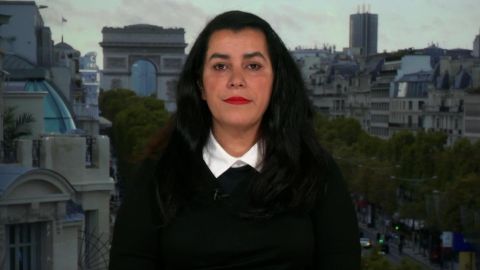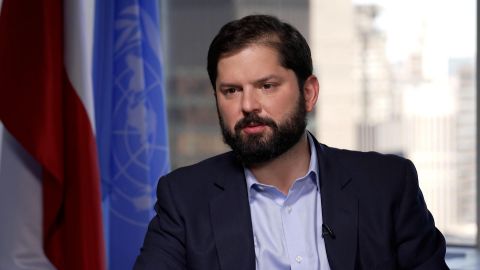Read Transcript EXPAND
CHRISTIANE AMANPOUR, HOST: Can I just move to a more personal issue which also has bigger resonance around the world right now? And it is actually up about mental health. And you have spoken quite openly and freely about your own issues, OCD and the like. My question is, why have you decided to speak openly about it? What do you say to your people and people around the world? And how has it affected you? I mean, your president of your nation?
GABRIEL BORIC, CHILEAN PRESIDENT (through translator): Yes. Well, thank you for the question. When you have a wound, when you have a broken bone, it’s noticeable. It bleeds and you can see it and you have to undergo a treatment to be able to heal it. But when you have an affectation regarding mental health, many times you hide it. And there’s a very large discrimination regarding on how you are treated regarding that. Look at how people say, don’t be crazy, don’t act schizophrenic, don’t be bipolar as it was an insult. And they are diseases. And more than anything, I think the first barrier we have to overcome to be able to confront seriously these issues of mental health is to be able to having them stop being a stigma. I have an obsessive-compulsive disorder that’s completely under control. And, thank God, I’ve been able to undergo treatment and it doesn’t make me unable to be able to carry out my responsibilities as representative as the president of republic. And I think this is something that’s very difficult to accept for a lot of people. But we have to be able to speak about mental health because mental health is very important. In my country, only two percent of the budget regarding public health is destined for mental health because we haven’t outspoken enough about it. And more than anything, it’s a burden. It’s something that we keep it deep inside. And I think that when persons like me who have a public committee, I can speak freely about this, we will help a lot of people who can — to be able to feel better and also to facilitate the access for treatment. mental health does not have to be taboo and I have no problem in I’m speaking about it openly.
About This Episode EXPAND
In her illustrated memoir “Persepolis” author Marjane Satrapi recounts growing up in Iran during the revolution. In an exclusive interview, Christiane speaks to Chile’s new president, Gabriel Boric, who recently made an impassioned call to fight for democracy at the U.N. Author Joshua Prager has spent a decade researching the life of “Jane Roe” — the woman at the heart of Roe v. Wade.
LEARN MORE


